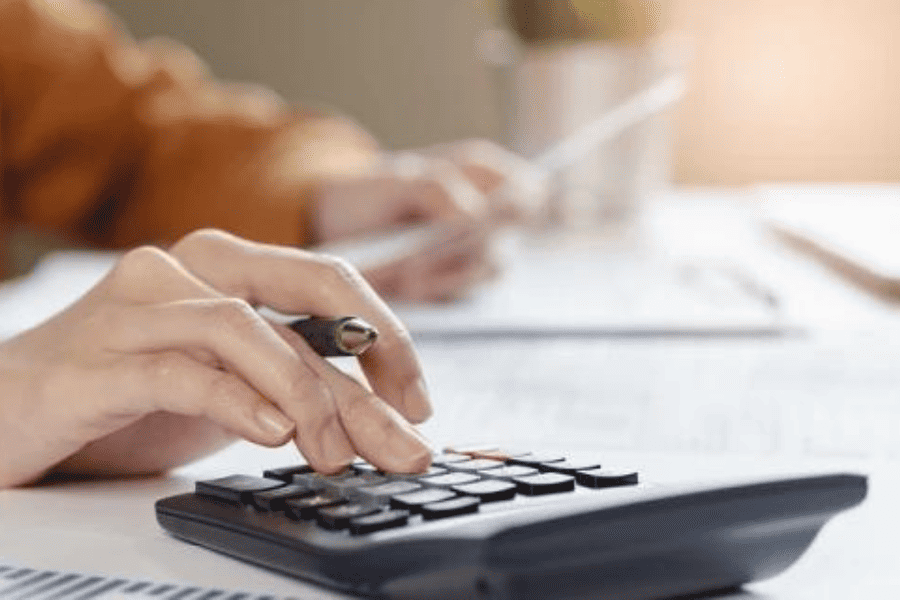THE OTHER DAY IT OCCURRED TO ME TO LOOK AT HOW RICH I AM.
WHAT DOES MY PROPERTY REALLY COST? Property costs include the purchase price, closing costs, taxes, fees and other expenses associated with buying and owning a property. These costs can vary greatly depending on the type of property, location and other factors. Common costs associated with property include:
- Purchase price
- Acquisition costs
- Property tax
- Homeowner's insurance
- Utilities and maintenance
- Fees of the homeowners' association
- Fees for mortgage loans
- Improvements to the house
- Fees for property management
Purchase contracts are associated with numerous costs. These costs include the initial cost of the contract, the ongoing costs of maintaining the contract and any additional costs that may arise. Knowing and understanding these costs will enable you to make informed decisions when it comes to signing a purchase agreement, in which case it is advisable to contact our experts at WENET AG, who are knowledgeable in all matters from start to finish.
The initial costs of a purchase agreement depend on the complexity of the contract and the terms of the agreement, important how, what, when, where and who issues need to be resolved. These costs include legal fees, filing fees and other administrative costs. It is important to be aware of the full costs before signing the agreement as these can be significant expenses. Ongoing costs associated with a purchase agreement include, for example, annual licence fees, maintenance fees and other ongoing costs. These fees can add up over time, so it is important to include them in the total cost of the contract.
In some cases, additional costs may be incurred due to changes to the contract. These can be, for example, additional fees for changes to the terms of the contract or fees for additional services. These costs should be taken into account when signing a purchase contract, as they can quickly add up. Finally, it is important to be aware of the consequences of pulling out of a purchase contract. Depending on the terms of the contract, additional costs may be incurred when cancelling a contract, such as a cancellation fee. It is important that you are aware of these costs before you sign a purchase contract.
Overall, sales contracts can be a good way to enter into a long-term agreement with a customer. However, it is important to know the costs associated with the contract before signing it. If, like us, you know the costs associated with a purchase agreement, you can make informed decisions and ensure that the agreement is beneficial to all parties. Additional costs associated with property can be a major concern for potential homebuyers. From taxes to maintenance, there are a variety of expenses and fees associated with owning a property that can quickly add up.

PROPERTY COSTS AT A GLANCE
Property taxes
Property tax is one of the biggest expenses for property owners. Depending on the location and size of the property, taxes can range from a few hundred to several thousand dollars per year. In most cases, property tax is based on the assessed value of the property and can increase with any improvements or renovations to the property.
Homeowner's insurance
Another major expense for property owners is contents insurance. Contents insurance protects the property from damage and covers liability claims that may arise from accidents on the property. The cost of contents insurance can vary considerably depending on the value of the property and the desired cover.
Maintenance
Maintaining a property can be a costly endeavour. From simple repairs to major renovations, property owners need to pay for a variety of services and materials to keep the property in good condition. This can include things like lawn care, painting and replacing appliances.
Ancillary costs
Utilities are another expense associated with owning a property. From electricity to water to sewage, the bills can quickly add up. Some properties also require additional services such as cable, internet and telephone.
Legal fees
In some cases, property owners need to instruct a lawyer to deal with legal matters relating to the property. This can range from drafting contracts to resolving disputes. The cost of these legal services can range from hundreds to thousands of dollars.
These are just some of the additional costs associated with owning a property. It is important to consider these costs when budgeting for a property. With careful planning and research, property owners can ensure that they are prepared for these costs and can enjoy the benefits of home ownership.
TAXES - INPUTS AROUND REAL ESTATES
The taxation of real estate in Switzerland is determined by the canton in which the property is located. Each canton has its own tax laws and regulations, and the tax rate can vary from canton to canton. In general, taxes on real estate in Switzerland are made up of federal and cantonal taxes, land registry fees and local taxes. Federal taxes in Switzerland are made up of property gains tax and wealth tax. Property gains tax is levied on profits from the sale of certain properties. The tax rate is generally 30-50 % of the profit. Wealth tax is levied on all natural persons domiciled in Switzerland and on legal entities domiciled in Switzerland. The tax rate is generally 0.3-1.3 %.
Cantonal taxes in Switzerland vary from canton to canton. In general, cantonal taxes are made up of property taxes and municipal taxes. Property taxes are usually levied on the market value of the property and the tax rate can vary from canton to canton. Municipal taxes are generally levied on the market value of the building, whereby the tax rate can also vary depending on the canton.
Land registration fees are levied on all property transactions and fees vary from canton to canton. You can save tax on property in Switzerland by investing in certain types of property trusts and funds, investing in Swiss property through a company, claiming certain tax deductions, investing through a pension fund or taking advantage of investment incentives offered by certain cantons.
To calculate the total taxes due on a property transaction in Switzerland, you should consult one of our specialists who are familiar with the tax laws and regulations of the canton in which the property is located.
SAVINGS TIPS - WHERE CAN I SAVE MONEY?
1. search for the best mortgage rates.
2 Consider whether you want to live in a smaller house or flat.
3. buy a property in an area with lower taxes and lower insurance costs.
4. invest in energy-efficient appliances.
5. consider buying an existing house instead of building a new one.
6. find out about local building regulations to reduce construction costs.
7. negotiate the closing costs with the seller or lender.
8. hire a professional home inspector to identify potential problems.
9. consider buying a foreclosure or short sale to save money.
10. use public transport or form car pools to save on transport costs.
Would you like to be kept up to date with our blog articles?
Then sign up for the WENET newsletter right here below!

